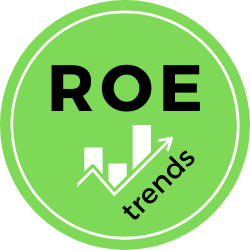Citigroup Stock Analysis

Citigroup Inc. (C) stands as a global financial giant, with a vast network spanning over 160 countries and jurisdictions. This Citigroup stock analysis dives deep into the company’s financial performance, strategic initiatives, competitive landscape, and potential risks, providing a comprehensive overview for investors.
Company Overview
- History: Citigroup’s history is a tapestry woven through mergers and acquisitions, tracing its lineage back to the founding of City Bank of New York in 1812. Key milestones include its merger with Travelers Group in 1998 and the subsequent divestitures and restructuring following the 2008 financial crisis.
- Shareholders: Citigroup is publicly traded, with a diverse shareholder base. Major institutional investors include Vanguard Group, BlackRock, and State Street Global Advisors.
Financial Performance: A Story of Transformation
Citigroup’s financial performance has been marked by periods of growth and restructuring as it navigates the complexities of the global financial landscape. This Citigroup stock analysis examines key metrics like Return on Equity (ROE), revenue, and net income to assess its financial health.
- ROE: Citigroup’s ROE has fluctuated over the past decade, reflecting the company’s efforts to streamline operations and improve profitability.
| Year | ROE (%) |
| 2014 | 7.1 |
| 2015 | 8.1 |
| 2016 | 7.9 |
| 2017 | 8.9 |
| 2018 | 10.9 |
| 2019 | 12.2 |
| 2020 | 6.1 |
| 2021 | 11.7 |
| 2022 | 8.7 |
| 2023 | 9.9 |
| 2024 (TTM) | 3.25 |
(Source: Macrotrends, company filings)
We recommend that you check the accuracy of the data on the company’s investor relations website.
ROE Analysis:
Citigroup’s ROE reflects the challenges and opportunities faced by a global bank. The decline in 2020 can be attributed to the impact of the COVID-19 pandemic on the global economy. However, the subsequent rebound in 2021 and continued growth in 2022 and 2023 indicate the bank’s resilience and its efforts to improve profitability. Investors should consider factors such as global economic conditions, interest rate changes, and regulatory environment when analyzing Citigroup’s ROE trends.
- Net Income
- Revenue
This Citigroup stock analysis will provide a comprehensive view of the company’s financial performance, taking into account its global operations and strategic initiatives.
Strategic Focus: Global Reach and Transformation
Citigroup’s strategic priorities focus on leveraging its global network, investing in technology, and simplifying its operations. This Citigroup stock analysis highlights key strategic initiatives:
- Global Network Optimization: Focusing on key markets and client segments to maximize the value of its global network.
- Digital Transformation: Investing in digital banking technologies to enhance customer experience, improve efficiency, and offer innovative financial solutions.
- Risk Management and Controls: Strengthening risk management and control frameworks to ensure financial stability and regulatory compliance.
- ESG Leadership: Integrating environmental, social, and governance (ESG) factors into business decisions and operations, promoting sustainable finance and social responsibility.
SWOT Analysis:
This Citigroup stock analysis includes a SWOT analysis to provide a balanced perspective on the company’s position:
Strengths:
- Global Presence: Citigroup’s extensive global network provides access to diverse markets and a broad client base, including individuals, corporations, and governments.
- Brand Recognition: As a globally recognized brand, Citigroup benefits from customer trust and loyalty.
- Diversified Business Model: Citigroup operates across various segments, including consumer banking, institutional clients group, and private banking, providing diversification and resilience.
- Innovation and Technology: Citigroup is investing in technology to enhance digital banking capabilities, improve operational efficiency, and develop innovative financial solutions.
Weaknesses:
- Complexity and Legacy Issues: Citigroup’s vast and complex global operations can lead to challenges in managing risk and streamlining processes.
- Regulatory Scrutiny: As a global financial institution, Citigroup faces stringent regulatory oversight and compliance costs in various jurisdictions.
- Reputational Challenges: Past controversies and legal issues have impacted Citigroup’s reputation, requiring continuous efforts to rebuild trust and maintain ethical standards.
- Competition: Intense competition from other global banks, regional banks, and fintech companies can pressure market share and profitability.
Opportunities:
- Growth in Emerging Markets: Expanding its presence in emerging markets to capture growth opportunities and serve a growing middle class.
- Digital Banking Expansion: Enhancing digital banking offerings to improve customer experience and attract new clients.
- Sustainable Finance: Developing and promoting sustainable finance products and services to meet the increasing demand for ESG-focused investments.
- Wealth Management Growth: Expanding its wealth management services to cater to the growing demand for financial advice and investment solutions among affluent clients.
Threats:
- Global Economic Slowdown: A potential global recession could impact loan growth, increase credit losses, and reduce economic activity, affecting Citigroup’s profitability.
- Geopolitical Uncertainty: Geopolitical tensions, trade wars, and political instability can create market volatility and impact investor confidence.
- Regulatory Changes: Evolving regulations and compliance requirements in various jurisdictions could increase costs and limit certain business activities.
- Cybersecurity Risks: The increasing reliance on technology exposes Citigroup to cybersecurity threats, which could compromise sensitive data and disrupt operations.
Competitive Landscape: A Global Playing Field
Citigroup faces competition from a wide range of players in the global financial services industry:
1. Global Banks:
- JPMorgan Chase: The largest bank in the U.S., JPMorgan Chase competes with Citigroup in various markets, including investment banking, wealth management, and consumer banking.
- Bank of America: Another major competitor, Bank of America has a strong presence in consumer and commercial banking, wealth management, and investment banking.
- HSBC: A global banking and financial services company headquartered in London, HSBC competes with Citigroup in various markets, including Asia and Europe.
2. Regional Banks: Regional banks compete with Citigroup in specific geographic markets, offering personalized services and local expertise.
3. Investment Banks:
- Goldman Sachs: A leading global investment bank, Goldman Sachs competes with Citigroup in investment banking and capital markets.
- Morgan Stanley: Another major investment bank, Morgan Stanley competes with Citigroup in investment banking and wealth management.
4. Other Competitors:
- Fintech Companies: Fintech companies are increasingly offering banking and financial services, challenging traditional banks like Citigroup.
- Non-Financial Companies: Technology giants like Apple and Google are expanding into financial services, potentially disrupting traditional banking models.
Citigroup must effectively leverage its global network, differentiate its offerings, and adapt to the evolving competitive landscape to maintain its market position.
Key Projects and Future Outlook: Transformation and Growth
- Digital Banking Enhancements: Continuing to invest in digital banking technologies to improve customer experience, streamline operations, and offer innovative financial solutions.
- Risk Management and Control Improvements: Strengthening risk management and control frameworks to enhance financial stability and regulatory compliance.
- ESG Integration: Deepening its commitment to ESG principles by integrating sustainability considerations into its operations and offering ESG-focused financial products and services.
Mitigating the Risks:
Citigroup employs a comprehensive risk management framework to address various challenges:
- Global Risk Management: Managing risks across its global operations, considering economic, political, and regulatory factors in various jurisdictions.
- Cybersecurity Measures: Investing in cybersecurity infrastructure and protocols to protect against cyberattacks and data breaches.
- Regulatory Compliance: Ensuring compliance with evolving regulations in various jurisdictions and investing in robust compliance programs.
- Reputational Risk Management: Prioritizing ethical conduct, transparency, and customer trust to manage reputational risks.
Financial Analysis and Valuation:
Investors should conduct a thorough financial analysis of Citigroup, considering:
- Profitability Margins: Analyzing trends in net interest margin, non-interest income, and operating efficiency across different business segments and geographies.
- Capital Adequacy: Assessing capital ratios and the bank’s ability to absorb potential losses in various economic scenarios.
- Asset Quality: Evaluating loan portfolio quality and credit risk management practices across different markets.
- Valuation Metrics: Utilizing ratios like price-to-earnings (P/E), price-to-book (P/B), and dividend yield to compare Citigroup’s valuation with its global peers.
Investor Sentiment and Market Outlook:
- Analyst Ratings: Monitoring analyst opinions and price targets for Citigroup stock.
- Market Trends: Assessing investor sentiment towards the global banking sector and broader market conditions.
- News and Media Coverage: Staying informed about news and events that could impact Citigroup’s performance and reputation.
Environmental, Social, and Governance (ESG) Factors:
Citigroup is actively incorporating ESG considerations into its business practices:
- Climate Change: Committing to environmental sustainability by reducing its carbon footprint, financing renewable energy projects, and supporting the transition to a low-carbon economy.
- Social Impact: Investing in community development, financial inclusion initiatives, and diversity & inclusion programs globally.
- Corporate Governance: Strengthening corporate governance practices, promoting ethical conduct, and enhancing transparency.
Investment Considerations:
Investors should consider the following factors when evaluating Citigroup stock:
- Global Economic Outlook: Assess the potential impact of global economic conditions on Citigroup’s performance.
- Regulatory Environment: Monitor regulatory developments in various jurisdictions and their potential impact on Citigroup’s operations and profitability.
- Competitive Landscape: Evaluate the bank’s ability to compete effectively in the global financial services industry.
- ESG Performance: Consider Citigroup’s commitment to sustainability and social responsibility.
- Risk Tolerance: Align investment decisions with individual risk tolerance and investment goals.
Conclusion:
Citigroup is a global banking giant with a vast network, diverse business lines, and a commitment to transformation. While the company faces challenges in a complex and competitive environment, its strategic initiatives and risk management practices are crucial for its future success. Investors should carefully evaluate Citigroup’s financial performance, competitive positioning, and potential risks before making investment decisions. This Citigroup stock analysis provides a comprehensive overview to aid in that evaluation.





